Skip to main content
 One is defying traditional gender-based norms through her choice of career path while making it easier for her peers to do the same. Another was motivated to turn tragedy into triumph and dedicate his research to making the world more accessible to people with disabilities. And still others are working to unlock the mysteries of disease, empowering communities through data, and questioning how we can ensure that emerging technologies are designed to serve diverse people and communities.
What all five… Read more →
One is defying traditional gender-based norms through her choice of career path while making it easier for her peers to do the same. Another was motivated to turn tragedy into triumph and dedicate his research to making the world more accessible to people with disabilities. And still others are working to unlock the mysteries of disease, empowering communities through data, and questioning how we can ensure that emerging technologies are designed to serve diverse people and communities.
What all five… Read more →
May 11, 2022
 “Nothing about us without us.”
That statement has become a rallying cry for people with disabilities to ensure they have a direct voice in shaping the policies and conditions that, in turn, shape their access to employment, education, and lately, technology. With the growing proliferation of human-centered applications powered by artificial intelligence, it has become clear that the question of who will benefit from these emerging technologies will be determined in no small part by who makes them.
Venkatesh Potluri… Read more →
“Nothing about us without us.”
That statement has become a rallying cry for people with disabilities to ensure they have a direct voice in shaping the policies and conditions that, in turn, shape their access to employment, education, and lately, technology. With the growing proliferation of human-centered applications powered by artificial intelligence, it has become clear that the question of who will benefit from these emerging technologies will be determined in no small part by who makes them.
Venkatesh Potluri… Read more →
May 9, 2022
 When Sewon Min first arrived at the University of Washington as an exchange student in the fall of 2016, little did she know how those three months would change the course of her academic career. After completing a brief stint as an undergraduate research assistant under the guidance of Allen School professors Hannaneh Hajishirzi and Ali Farhadi, she returned to Seoul National University in Korea to complete her bachelor’s degree. In the interim, Hajishirzi “tried really hard” to convince… Read more →
When Sewon Min first arrived at the University of Washington as an exchange student in the fall of 2016, little did she know how those three months would change the course of her academic career. After completing a brief stint as an undergraduate research assistant under the guidance of Allen School professors Hannaneh Hajishirzi and Ali Farhadi, she returned to Seoul National University in Korea to complete her bachelor’s degree. In the interim, Hajishirzi “tried really hard” to convince… Read more →
April 27, 2022
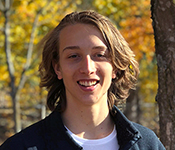 When he was a student in high school, computer science major Alex Mallen had what he describes as a “rough” introduction to research. Fortunately, the Bellevue, Washington, native didn’t let that experience deter him at the University of Washington, where as a freshman he decided to try again as a step toward pursuing a Ph.D. after graduation. Mallen’s persistence has paid off in the form of multiple, positive research experiences that have helped him to solidify his plans to enroll… Read more →
When he was a student in high school, computer science major Alex Mallen had what he describes as a “rough” introduction to research. Fortunately, the Bellevue, Washington, native didn’t let that experience deter him at the University of Washington, where as a freshman he decided to try again as a step toward pursuing a Ph.D. after graduation. Mallen’s persistence has paid off in the form of multiple, positive research experiences that have helped him to solidify his plans to enroll… Read more →
April 12, 2022
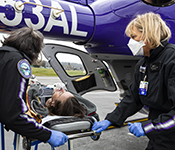 Photo: Mark Stone/University of Washington
Artificial intelligence tools have the potential to become as essential to medical research and patient care as centrifuges and x-ray machines. Advances in high-accuracy predictive modeling can enable providers to analyze a range of patient risk factors to facilitate better health care outcomes — from preventing the onset of complications during surgery, to assessing the risk of developing various diseases.
When it comes to emergency services or critical care settings, however, the potential benefits of… Read more →
Photo: Mark Stone/University of Washington
Artificial intelligence tools have the potential to become as essential to medical research and patient care as centrifuges and x-ray machines. Advances in high-accuracy predictive modeling can enable providers to analyze a range of patient risk factors to facilitate better health care outcomes — from preventing the onset of complications during surgery, to assessing the risk of developing various diseases.
When it comes to emergency services or critical care settings, however, the potential benefits of… Read more →
April 11, 2022
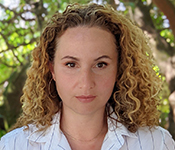 Less than a year after her arrival at the University of Washington, professor Yulia Tsvetkov is making her mark as the newest member of the Allen School’s Natural Language Processing group. As head of the Tsvetshop — a clever play on words that would likely stymie your typical natural language model — Tsvetkov draws upon elements of linguistics, economics, and the social and political sciences to develop technologies that not only represent the leading edge of artificial intelligence and natural… Read more →
Less than a year after her arrival at the University of Washington, professor Yulia Tsvetkov is making her mark as the newest member of the Allen School’s Natural Language Processing group. As head of the Tsvetshop — a clever play on words that would likely stymie your typical natural language model — Tsvetkov draws upon elements of linguistics, economics, and the social and political sciences to develop technologies that not only represent the leading edge of artificial intelligence and natural… Read more →
April 4, 2022
 Recent advances in open-ended text generation could enable machines to produce text that approaches or even mimics that generated by humans. However, evaluating the quality and accuracy of these large-scale models has remained a significant computational challenge. Recently, researchers at the Allen School and Allen Institute for AI (AI2) offered a solution in the form of MAUVE, a practical tool for assessing modern text generation models’ output compared to human-generated text that is both efficient and scalable. The team’s… Read more →
Recent advances in open-ended text generation could enable machines to produce text that approaches or even mimics that generated by humans. However, evaluating the quality and accuracy of these large-scale models has remained a significant computational challenge. Recently, researchers at the Allen School and Allen Institute for AI (AI2) offered a solution in the form of MAUVE, a practical tool for assessing modern text generation models’ output compared to human-generated text that is both efficient and scalable. The team’s… Read more →
February 28, 2022
 Luke Zettlemoyer, a professor in the Allen School’s Natural Language Processing group and a research director at Meta AI, was recently elected a Fellow of the Association for Computational Linguistics (ACL) for “significant contributions to grounded semantics, semantic parsing, and representation learning for natural language processing.” Since he arrived at the University of Washington in 2010, Zettlemoyer has focused on advancing the state of the art in NLP while expanding its reach into other areas of artificial intelligence such… Read more →
Luke Zettlemoyer, a professor in the Allen School’s Natural Language Processing group and a research director at Meta AI, was recently elected a Fellow of the Association for Computational Linguistics (ACL) for “significant contributions to grounded semantics, semantic parsing, and representation learning for natural language processing.” Since he arrived at the University of Washington in 2010, Zettlemoyer has focused on advancing the state of the art in NLP while expanding its reach into other areas of artificial intelligence such… Read more →
February 23, 2022
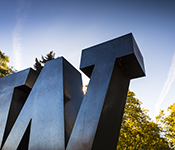 The Allen School has a proud tradition of nurturing undergraduate student researchers whose work has the potential for real-world impact. This year, three of those students — Jerry Cao, Mike He and Yu Xin — earned honorable mentions from the Computing Research Association (CRA) as part of its 2022 Outstanding Undergraduate Researcher Awards competition for their contributions in health sensing and fabrication, programming languages and machine learning, and building robust computer systems.
Jerry Cao
The CRA recognized senior Jerry… Read more →
The Allen School has a proud tradition of nurturing undergraduate student researchers whose work has the potential for real-world impact. This year, three of those students — Jerry Cao, Mike He and Yu Xin — earned honorable mentions from the Computing Research Association (CRA) as part of its 2022 Outstanding Undergraduate Researcher Awards competition for their contributions in health sensing and fabrication, programming languages and machine learning, and building robust computer systems.
Jerry Cao
The CRA recognized senior Jerry… Read more →
February 22, 2022
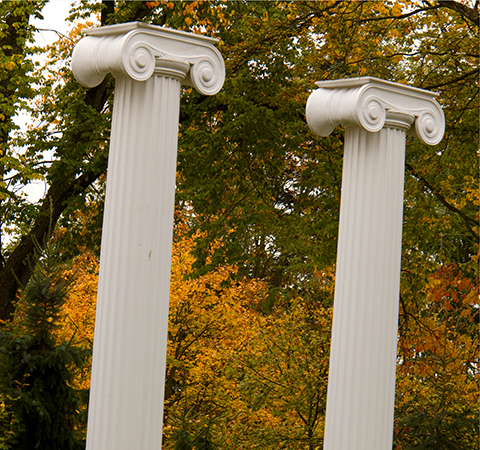 During their time at the Allen School, recent alumni Maarten Sap (Ph.D., ‘21) and Ivan Evtimov (Ph.D., ‘21) tackled some of the thorniest issues raised by emerging natural language processing and machine learning technologies — from endowing NLP systems with social intelligence while combating inequity and bias, to addressing security vulnerabilities in the convolutional neural networks that fuel state-of-the-art computer vision systems. Recently, the faculty honored both for their contributions with the William Chan Memorial Dissertation Award, which was… Read more →
During their time at the Allen School, recent alumni Maarten Sap (Ph.D., ‘21) and Ivan Evtimov (Ph.D., ‘21) tackled some of the thorniest issues raised by emerging natural language processing and machine learning technologies — from endowing NLP systems with social intelligence while combating inequity and bias, to addressing security vulnerabilities in the convolutional neural networks that fuel state-of-the-art computer vision systems. Recently, the faculty honored both for their contributions with the William Chan Memorial Dissertation Award, which was… Read more →
February 3, 2022
« Newer Posts — Older Posts »
 One is defying traditional gender-based norms through her choice of career path while making it easier for her peers to do the same. Another was motivated to turn tragedy into triumph and dedicate his research to making the world more accessible to people with disabilities. And still others are working to unlock the mysteries of disease, empowering communities through data, and questioning how we can ensure that emerging technologies are designed to serve diverse people and communities.
What all five… Read more →
One is defying traditional gender-based norms through her choice of career path while making it easier for her peers to do the same. Another was motivated to turn tragedy into triumph and dedicate his research to making the world more accessible to people with disabilities. And still others are working to unlock the mysteries of disease, empowering communities through data, and questioning how we can ensure that emerging technologies are designed to serve diverse people and communities.
What all five… Read more →

 One is defying traditional gender-based norms through her choice of career path while making it easier for her peers to do the same. Another was motivated to turn tragedy into triumph and dedicate his research to making the world more accessible to people with disabilities. And still others are working to unlock the mysteries of disease, empowering communities through data, and questioning how we can ensure that emerging technologies are designed to serve diverse people and communities.
What all five… Read more →
One is defying traditional gender-based norms through her choice of career path while making it easier for her peers to do the same. Another was motivated to turn tragedy into triumph and dedicate his research to making the world more accessible to people with disabilities. And still others are working to unlock the mysteries of disease, empowering communities through data, and questioning how we can ensure that emerging technologies are designed to serve diverse people and communities.
What all five… Read more →
 “Nothing about us without us.”
That statement has become a rallying cry for people with disabilities to ensure they have a direct voice in shaping the policies and conditions that, in turn, shape their access to employment, education, and lately, technology. With the growing proliferation of human-centered applications powered by artificial intelligence, it has become clear that the question of who will benefit from these emerging technologies will be determined in no small part by who makes them.
Venkatesh Potluri… Read more →
“Nothing about us without us.”
That statement has become a rallying cry for people with disabilities to ensure they have a direct voice in shaping the policies and conditions that, in turn, shape their access to employment, education, and lately, technology. With the growing proliferation of human-centered applications powered by artificial intelligence, it has become clear that the question of who will benefit from these emerging technologies will be determined in no small part by who makes them.
Venkatesh Potluri… Read more →
 When Sewon Min first arrived at the University of Washington as an exchange student in the fall of 2016, little did she know how those three months would change the course of her academic career. After completing a brief stint as an undergraduate research assistant under the guidance of Allen School professors Hannaneh Hajishirzi and Ali Farhadi, she returned to Seoul National University in Korea to complete her bachelor’s degree. In the interim, Hajishirzi “tried really hard” to convince… Read more →
When Sewon Min first arrived at the University of Washington as an exchange student in the fall of 2016, little did she know how those three months would change the course of her academic career. After completing a brief stint as an undergraduate research assistant under the guidance of Allen School professors Hannaneh Hajishirzi and Ali Farhadi, she returned to Seoul National University in Korea to complete her bachelor’s degree. In the interim, Hajishirzi “tried really hard” to convince… Read more →
 When he was a student in high school, computer science major Alex Mallen had what he describes as a “rough” introduction to research. Fortunately, the Bellevue, Washington, native didn’t let that experience deter him at the University of Washington, where as a freshman he decided to try again as a step toward pursuing a Ph.D. after graduation. Mallen’s persistence has paid off in the form of multiple, positive research experiences that have helped him to solidify his plans to enroll… Read more →
When he was a student in high school, computer science major Alex Mallen had what he describes as a “rough” introduction to research. Fortunately, the Bellevue, Washington, native didn’t let that experience deter him at the University of Washington, where as a freshman he decided to try again as a step toward pursuing a Ph.D. after graduation. Mallen’s persistence has paid off in the form of multiple, positive research experiences that have helped him to solidify his plans to enroll… Read more →

 Less than a year after her arrival at the University of Washington, professor Yulia Tsvetkov is making her mark as the newest member of the Allen School’s Natural Language Processing group. As head of the Tsvetshop — a clever play on words that would likely stymie your typical natural language model — Tsvetkov draws upon elements of linguistics, economics, and the social and political sciences to develop technologies that not only represent the leading edge of artificial intelligence and natural… Read more →
Less than a year after her arrival at the University of Washington, professor Yulia Tsvetkov is making her mark as the newest member of the Allen School’s Natural Language Processing group. As head of the Tsvetshop — a clever play on words that would likely stymie your typical natural language model — Tsvetkov draws upon elements of linguistics, economics, and the social and political sciences to develop technologies that not only represent the leading edge of artificial intelligence and natural… Read more →
 Recent advances in open-ended text generation could enable machines to produce text that approaches or even mimics that generated by humans. However, evaluating the quality and accuracy of these large-scale models has remained a significant computational challenge. Recently, researchers at the Allen School and Allen Institute for AI (AI2) offered a solution in the form of MAUVE, a practical tool for assessing modern text generation models’ output compared to human-generated text that is both efficient and scalable. The team’s… Read more →
Recent advances in open-ended text generation could enable machines to produce text that approaches or even mimics that generated by humans. However, evaluating the quality and accuracy of these large-scale models has remained a significant computational challenge. Recently, researchers at the Allen School and Allen Institute for AI (AI2) offered a solution in the form of MAUVE, a practical tool for assessing modern text generation models’ output compared to human-generated text that is both efficient and scalable. The team’s… Read more →
 Luke Zettlemoyer, a professor in the Allen School’s Natural Language Processing group and a research director at Meta AI, was recently elected a Fellow of the Association for Computational Linguistics (ACL) for “significant contributions to grounded semantics, semantic parsing, and representation learning for natural language processing.” Since he arrived at the University of Washington in 2010, Zettlemoyer has focused on advancing the state of the art in NLP while expanding its reach into other areas of artificial intelligence such… Read more →
Luke Zettlemoyer, a professor in the Allen School’s Natural Language Processing group and a research director at Meta AI, was recently elected a Fellow of the Association for Computational Linguistics (ACL) for “significant contributions to grounded semantics, semantic parsing, and representation learning for natural language processing.” Since he arrived at the University of Washington in 2010, Zettlemoyer has focused on advancing the state of the art in NLP while expanding its reach into other areas of artificial intelligence such… Read more →
 The Allen School has a proud tradition of nurturing undergraduate student researchers whose work has the potential for real-world impact. This year, three of those students — Jerry Cao, Mike He and Yu Xin — earned honorable mentions from the Computing Research Association (CRA) as part of its 2022 Outstanding Undergraduate Researcher Awards competition for their contributions in health sensing and fabrication, programming languages and machine learning, and building robust computer systems.
Jerry Cao
The CRA recognized senior Jerry… Read more →
The Allen School has a proud tradition of nurturing undergraduate student researchers whose work has the potential for real-world impact. This year, three of those students — Jerry Cao, Mike He and Yu Xin — earned honorable mentions from the Computing Research Association (CRA) as part of its 2022 Outstanding Undergraduate Researcher Awards competition for their contributions in health sensing and fabrication, programming languages and machine learning, and building robust computer systems.
Jerry Cao
The CRA recognized senior Jerry… Read more →
 During their time at the Allen School, recent alumni Maarten Sap (Ph.D., ‘21) and Ivan Evtimov (Ph.D., ‘21) tackled some of the thorniest issues raised by emerging natural language processing and machine learning technologies — from endowing NLP systems with social intelligence while combating inequity and bias, to addressing security vulnerabilities in the convolutional neural networks that fuel state-of-the-art computer vision systems. Recently, the faculty honored both for their contributions with the William Chan Memorial Dissertation Award, which was… Read more →
During their time at the Allen School, recent alumni Maarten Sap (Ph.D., ‘21) and Ivan Evtimov (Ph.D., ‘21) tackled some of the thorniest issues raised by emerging natural language processing and machine learning technologies — from endowing NLP systems with social intelligence while combating inequity and bias, to addressing security vulnerabilities in the convolutional neural networks that fuel state-of-the-art computer vision systems. Recently, the faculty honored both for their contributions with the William Chan Memorial Dissertation Award, which was… Read more →
